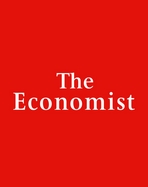European Russophobia and Europe’s Rejection of Peace: A Two-Century Failure
Europe has repeatedly rejected peace with Russia at moments when a negotiated settlement was available, and those rejections have proven profoundly self-defeating. Read more

The economist
NOT content with both purifying the Chinese Communist Party which he heads and with reforming his country, China’s president, Xi Jinping, also wants to reshape the economic and political order in Asia. With the flair that Chinese leaders share for pithy but rather bewildering encapsulations, his vision for the continent is summed up in official jargon as “One Belt, One Road”. As Mr Xi describes it, most recently last month at the Boao Forum, China’s tropical-beach imitation of Davos’s ski slopes, the belt-road concept will “answer the call of our time for regional and global co-operation”. Not everybody is convinced. Some see it as no more than an empty slogan; others as a thinly disguised Chinese plot to supplant America as Asia’s predominant power. Both criticisms seem misplaced. Mr Xi is serious about the idea. And it is less a “plot” than a public manifesto.
Mr Xi first floated the idea in 2013, in Kazakhstan. He mooted a “a Silk Road economic belt” of improved infrastructure along the main strands of what, centuries ago, was the network of overland routes used by silk traders and others to carry merchandise to and from China through Central Asia and Russia to northern Europe and Venice on the Adriatic. In Indonesia, Mr Xi proposed “a 21st-century maritime Silk Road”, reaching Europe by sea from cities on China’s south-eastern seaboard via Vietnam, Indonesia itself, India, Sri Lanka, east Africa and the Suez Canal. At the time, the proposals sounded rather fluffy—the sort of thing travelling leaders often trot out, harking back to a distant past of supposedly harmonious exchanges.
The article’s full-text is available on the website of The Economist